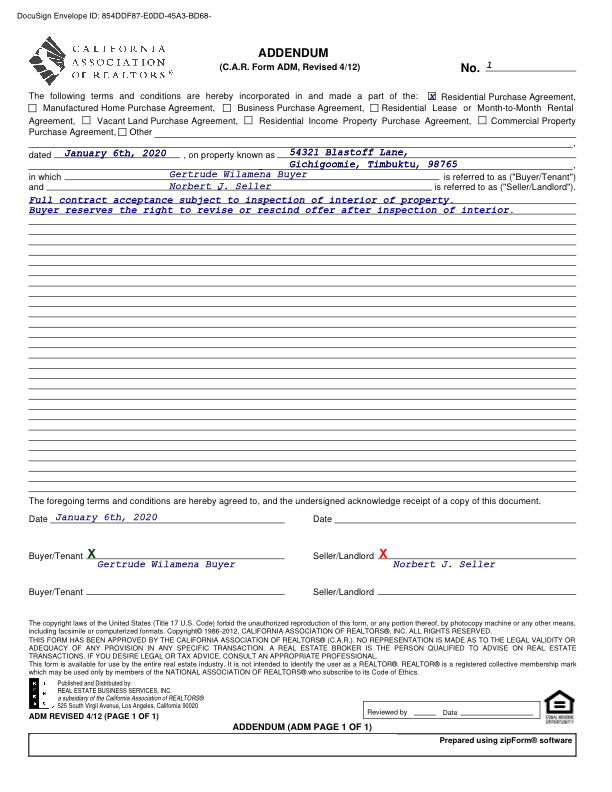Table of Content
The time limit for cancellation of sale deed according to the Limitation Act is 3 years. In your case limitation will start when you come to know this fact that they are cheating. Inspects any structural damage to the house and other areas that need to be fixed so that the buyer is aware of what he or she is getting.
Others, such as aging plumbing, the seller might have disclosed to you in the course of the sale, most likely through written disclosure forms (as are required in most U.S. states). In either case, if you knew or should have known about a defect, and chose to buy the home anyway, a court will not allow you to sue the seller. Some lines of recourse for repairs after closing include sending the seller a demand letter requesting they cover the cost of repair or request mediation. Under Florida law, a buyer can sue for damages, and even rescind a transaction, where a seller or real estate agent doesn’t reveal a material problem with the home prior to purchase.
What can I do if a home seller backs out of our real estate?
State and federal regulations dictate what the seller has to tell you about known issues within the home. Buyers generally might be expected to give the sellers 7 to 10 days to vacate the home after the closing date. Sellers may want more time in the home, but they can compromise by securing a place to stay for the short-term while they finalize their own situation. A sales agreement is a legally binding document and anyone who attempts to back out of a property purchase for spurious reasons may well land up in hot water. It’s not uncommon for buyers to try to cancel a house sale after signing the contract. Unfortunately, changing your mind isn’t usually a contingency covered by your purchase contract.
Rescinding their mortgage, however, does not give them the right to back out of homeownership. The result of not having a mortgage in place to pay for the home will, though, result in the buyer not being able to keep the property unless they provide alternative funds. If they cannot replace their mortgage the home will revert back to the seller and there may be legal ramifications for the buyer. Unlike buying a home, a buyer who has received bank financing for their purchase has 3 days after the house closes to rescind the financing and reject the mortgage. The most obvious reason is if they could get private financing or replace the mortgage with cash and so take the option to back out.
Can buyers sue seller after closing?
The following is the text from a memorandum issued by New York State titled ‘Delay in First Closing in Newly-Constructed Condominiums and Rescission’. All agents must belong to one of the schemes but is advisable to ensure your estate agency is a member from the outset. The above services will only handle a complaint if the agency is registered with their scheme. Whether or not you believe in karma, you may feel that gazumping is simply not morally justifiable. … A lock-out clause would mean that the homeowner would be prevented from accepting any higher offers after the agreement has been made, therefore, your gazumping will come to nothing.
“However, prior to entering into a contract, it is important to have an attorney review the contract to determine what the warranty covers. The Ombudsman provides redress, where appropriate, to consumers whose complaints are considered on a case-by-case basis. The Ombudsman is not a regulator and does not have the authority to take regulatory or legal action against an agent, impose fines or dictate the way agents conduct their business. No, if the defects were already pointed out during the home inspection. Certain home features that are expected to fail over time are also not covered by the law.
Can you sell a house without a home report?
You can only sue a person for non-disclosure if he or she in fact had a legal obligation to disclose something to you. Usually this is not an issue since these lawsuits typically arise in the context of a purchase and sale. The seller has a legal duty to the buyer due to the existence of their contractual relationship. An as-is clause written into a sales contract doesn't diminish a seller's duty to disclose a home's known defects.

“The dissatisfied buyer can contact the seller to determine whether the parties can work out an agreement or settlement of the issues,” he notes. “As is” language, according to the Georgia Real Estate Commission, is language that basically says the seller plans to sell the property as-is. Many times, sellers use as-is language to get out of having to perform basic cosmetic repairs, such as repainting a structure or installing new kitchen cabinets. In most situations, you do not have a time period where you have a right to rescind a contract. The Federal Trade Commission (“FTC”) has a 3 day, or 72 hour, cooling off period rule. If you are selling your home, you need to commission and provide a Home Report.
Are you liable for anything after selling a house?
For that reason among others, inspections are always encouraged. If the home is suddenly deteriorating after the sponsor sold it, the buyer can sue but any case is liable to be far from clean cut. You can back out of the deal if your lender can’t close your loan, plus you’ll get your earnest money deposit back. Yes, you can sue the seller for not disclosing defects if your attorney can prove that the seller knew about the defect and intentionally failed to disclose it. If you do end up suing the seller, you could seek monetary damages for the seller’s failure to disclose information or misrepresentation of the property.

Even if you think you’ve been wronged, you can’t sue everyone who was involved in the sale of your home. … As mentioned, nearly every U.S. state has laws requiring sellers to advise buyers of certain defects in the property, typically by filling out a standard disclosure form before the sale is completed. As a last resort, a homeowner may file a lawsuit against the seller within a limited amount of time, known as a statute of limitations. Statutes of limitations are typically two to 10 years after closing. Lawsuits may be filed in small claims court relatively quickly and inexpensively, and without an attorney.
After the home inspection, most buyers expect the sellers to make all necessary repairs, but that’s not always the case. There are several reasons why a seller might not complete repairs prior to closing. If the seller fails to disclose these issues and then the buyer is affected by the environmental hazards, the buyer could seek damages or compensation. For certain types of mortgages, after you sign your mortgage closing documents, you may be able to change your mind. You have the right to cancel, also known as the right of rescission, for most non-purchase money mortgages.
Lawyers who have received peer reviews after 2009 will display more detailed information, including practice areas, summary ratings, detailed numeric ratings and written feedback . Details for individual reviews received before 2009 are not displayed. Consult an attorney in your state for more information and a full analysis of your situation. A loss of a family member is a terrible event that can leave emotional scars, but it can also cause emotional distress to a seller when they must sell their home.
If a buyer feels they have paid too much for their home and been misled by industry professionals — agents, appraisers and attorneys — looking to make a profit on the sale, there are grounds to sue. If you decide to withdraw or reject the offer before exchanging contracts, you could still have to pay certain charges. … If they have found a buyer who’s willing and able to complete but you withdraw the property from sale, you might still have to pay the estate agent’s fee. To put it simply, no, a seller cannot legally back out of a home sale post-inspection.
Lying is considered fraud while hiding home defects or not being upfront about known issues can mislead buyers and in this case, the seller can be charged with misrepresentation. But take note that the seller and buyer don't just sign contracts when closing the sale. Contract signing is also done after the buyer makes a purchase offer and the seller agrees. This is called the "purchase agreement" wherein the buyer is also asked to make a deposit as a sign of goodwill.
Is Georgia buyer beware state?
We know that a seller can say whatever they want about the house on their listing, but the buyer deserves to know about anything that might affect the home. It is thus important to disclose environmental hazards and to make sure the buyer understands them before moving forward with the purchase. To protect the buyer from this kind of deception, it is always better to disclose the environmental hazards and let the buyer decide.






